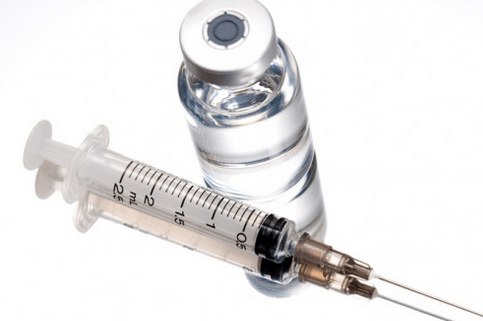
Hepatitis B remains a significant public health concern, and the implementation of the birth dose vaccines is crucial in preventing mother-to-child transmission of the virus.
But for over 2 decades, the country is now preparing to finally roll out the doses to all newborn in few months’ time.
In Ghana approximately 2.8 million people are living with Hepatitis B Virus while approximately 14, 000 deaths recorded yearly are due to HBV.
Half the burden of chronic hepatitis B and C infections is among people 30–54 years old, with 12% among children under 18 years of age.
In Ghana, many newborns are born to a mother who is hepatitis B positive. Unfortunately, most of the mothers are unaware of their status until after giving birth. The vaccine is given to the child from 6 weeks which experts say pre-exposes the baby to the virus before the routine check-up at the hospital, and by then, it would have been too late.

IDEALLY, every newborn is expected to be administered the hepatitis B birth dose vaccine, which is essential in preventing mother-to-child transmission.
In fact, studies have demonstrated that the birth dose vaccine can reduce the risk of mother-to-child transmission by up to 90%. This is particularly important in Ghana, where hepatitis B is a leading cause of liver cancer and cirrhosis. For years, advocacy have been keen on the birth doses.
Dr. Amoako Duah, a consultant Gastroenterologist at the University of Ghana Medical Centre wants government to prioritize the disease’s management in the country.

‘‘Hepatitis B and C together cause about 90% of cancers and once you get cancer of the liver, studies have shown that their survival rate is about 2 and half month. We hear more about breast cancer, malaria HIV and TB and it’s only because we get funding from the Global Fund. But viral hepatitis has not attracted international attention yet, and as a country we are also not looking at how the condition is affecting the population. So, my appeal is that management of this disease should be covered by the NHIS.’’
The World Health Organization recommends the inclusion of the hepatitis B birth dose vaccine in every country’s Expanded Programme on Immunization (EPI) schedule and finally the country is hitting the mark.
Program manager for the expanded program on immunization at the Ghana Health Service, Dr. Kwame Amponsa Achianno says the vaccines will be introduced this year.

‘‘We know that to complete the cycle of prevention, you need to protect the newborn as soon as they are born. So fortunately, as part of the portfolio optimization, GAVEY the alliance that supports vaccination is supporting the country to introduce the birth dose this year. “Processes are far advanced and hopefully by end of year, we should be implementing the doses.” He revealed.
The WHO reports each day that more than 6,000 people are newly infected with viral hepatitis. The organization bears 63% of new hepatitis B infections, yet despite this burden, only 18% of newborns in the region receive the hepatitis B birth-dose vaccination.
The post Hepatitis B birth dose vaccines to be rolled out for all newborns by end of year – GHS first appeared on 3News.
Read Full Story



















Facebook
Twitter
Pinterest
Instagram
Google+
YouTube
LinkedIn
RSS